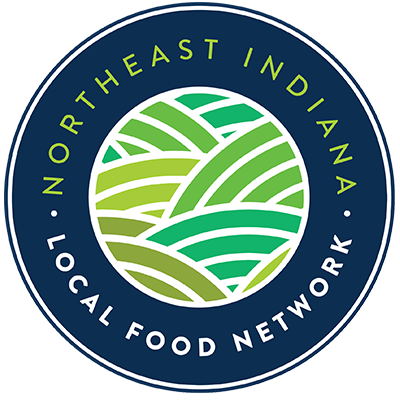Dates & Times:
Tuesday, September 21: 10:00am, 1:00pm, 2:30pm
Wednesday, September 22: 10:00am, 1:00pm, 2:30pm
Thursday, September 23: 10:00am, 1:00pm, 2:30pm
Friday, September 24: 10:00am only
Cost: Free, but reservations are required
Event Details
Join Myron Metzger on a tour of Berry Hill Farm to learn how he grows vegetables for market all year long.
Learn about Berry Hill Farm’s growing practices and how they build soil health to retain the nutrients and moisture necessary to grow a wide variety of beautiful, nutritious vegetables.
Myron will discuss the farm’s use of compost, tillage practices and insect resistance techniques. The tour will include time in the hoop houses and green house used to grow vegetables even during the winter months.
Farm Tours will be guided rain or shine, so dress for the weather and wear shoes to walk among the garden beds.
Pre-registration required
Call Myron Metzger at (260) 578-8105 to reserve your Farm Tour time. Only 10 tours will be offered and attendance for each small group tour is limited to assure social distancing.
Berry Hill Farm
Wholesome food for wellness minded people. Berry Hill Farm began in 2003 with one acre of blueberries. Our focus at that point was to be engaged in a family friendly activity. We soon realized that a great benefit was the interaction with our customers. While it is essential in any business to make enough profit to pay the bills and provide a living wage for those involved, we have found great fulfillment in bringing good food to people who appreciate it. Currently we farm two acres of blueberries and one acre of vegetables including three high tunnels for winter production.
In the past, we have been USDA Certified Organic, however through customer feedback and a careful evaluation of our biological approach to plant and soil health, we made the difficult decision to not certify organic, but instead apply that time and energy toward plant and soil care. Our guiding principles teach us to nurture the soil biology in ways that sequester carbon, preserve soil nutrition and cultivate plants that will produce delicious fruits and veggies that are deeply nutritious. We use as little purchased inputs as possible because we prefer to make our own compost and use natural, existing systems. This takes considerable attention to detail, but we believe it also produces a good product.
We use no chemical weed killers or any other toxic materials. We eat our share of what we produce and we do not have any interest in poisoning ourselves. Tree leaves collected in the fall and allowed to decompose for a year make an ideal weed suppression system. We also do some stale seed bed practices which means we lightly rake or till the soil then let it sit for a week and rake it again then plant the crop. This procedure kills one generation of weeds and gives us a cleaner crop. Our insect and disease control program is focused toward the goal of keeping the plants healthy so that they are able to resist disease and insects. If pests do get out of control, we on rare occasions do use organically acceptable materials.
Through the use of greenhouses, winter covers and storage facilities we are able to keep fresh produce available twelve months of the year. As the seasons change we try to plant whatever crop does the best at that point. Cold storage allows root crops to be available all winter.

